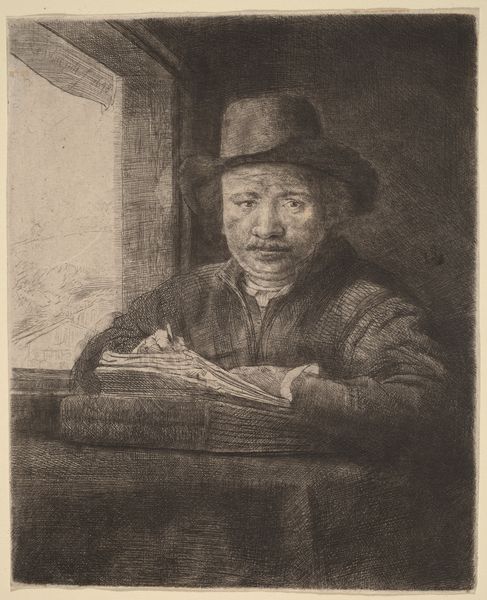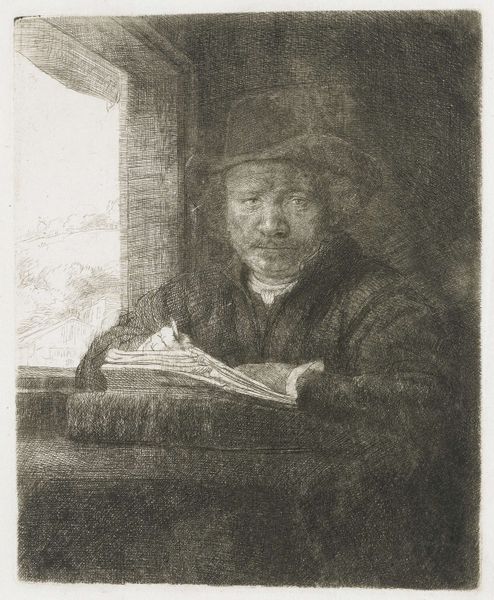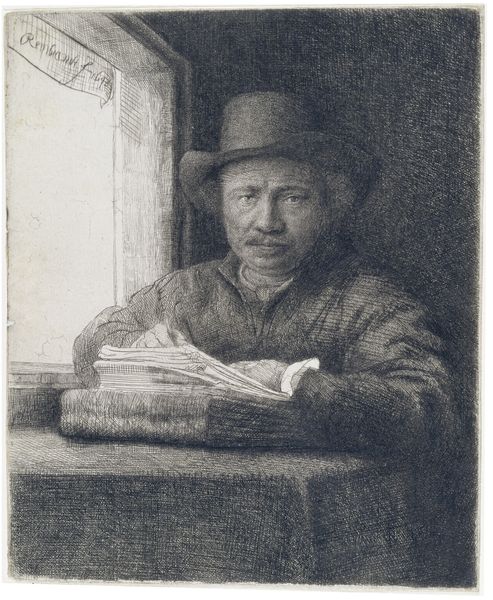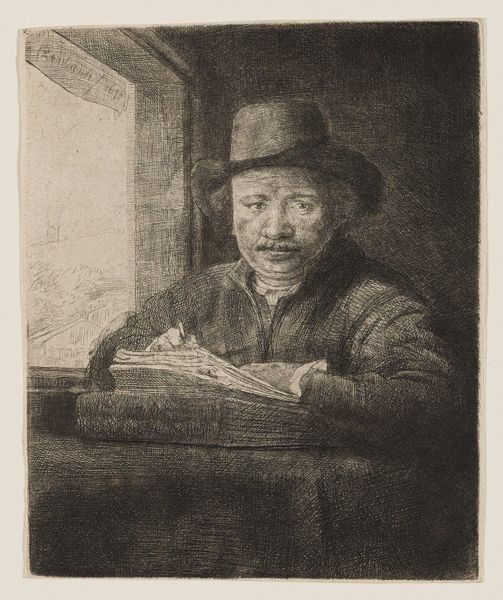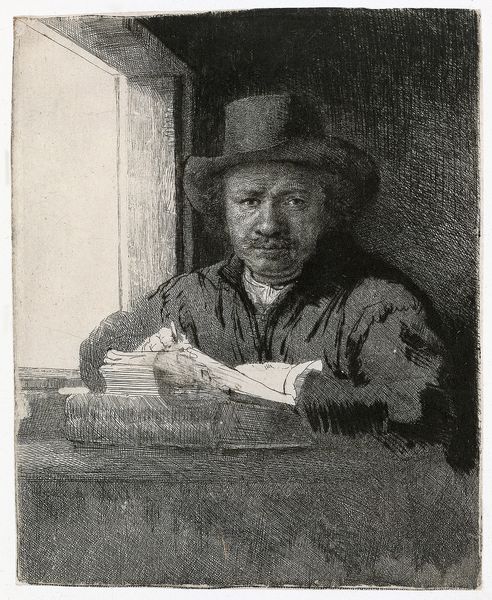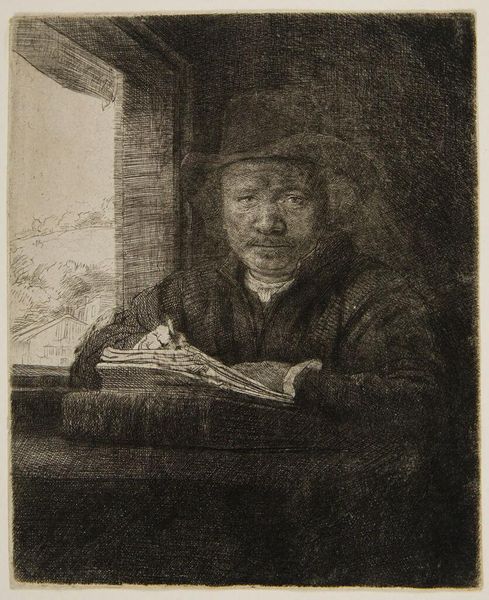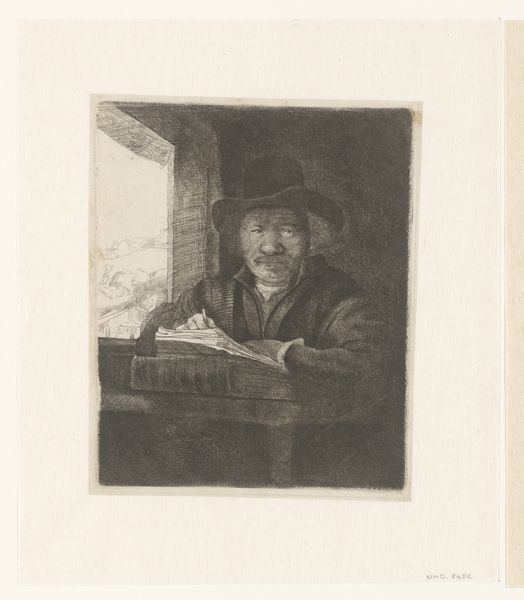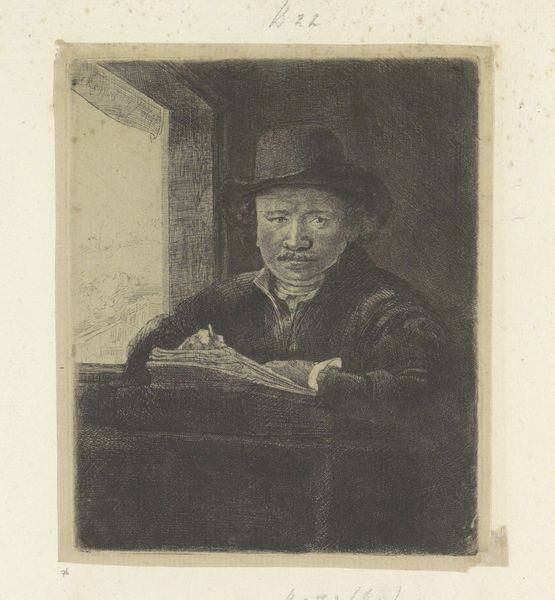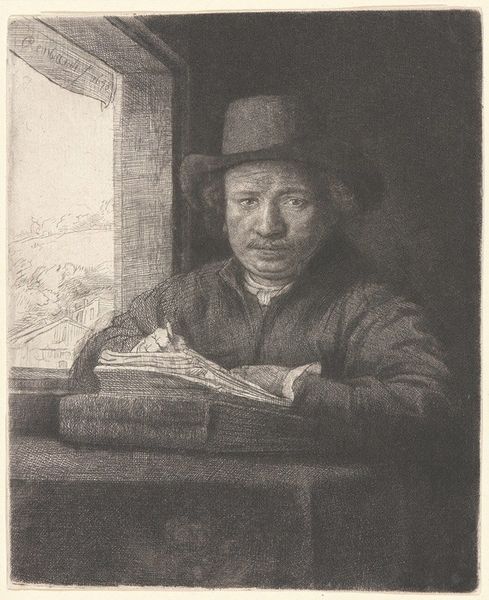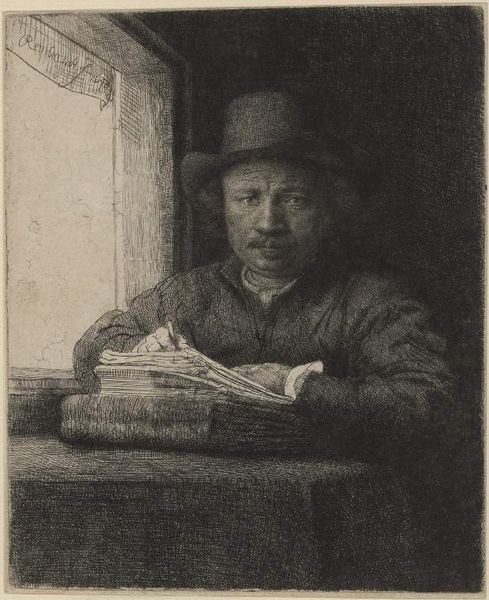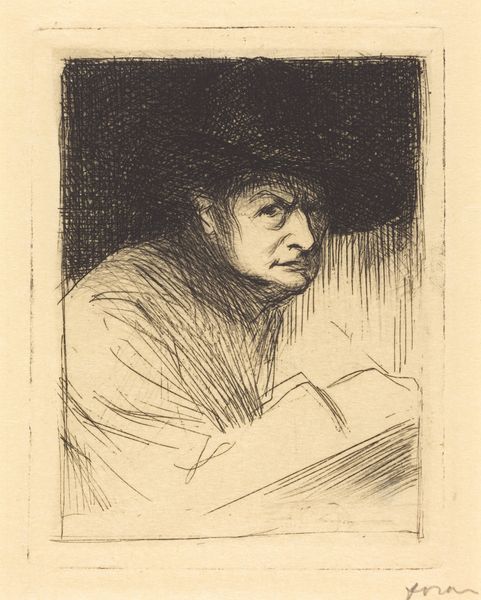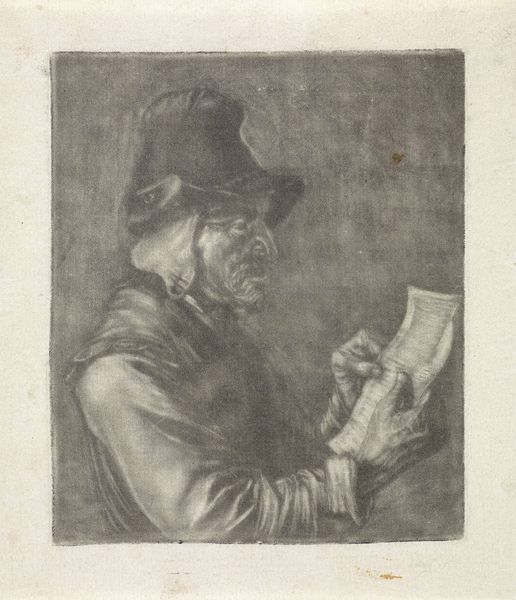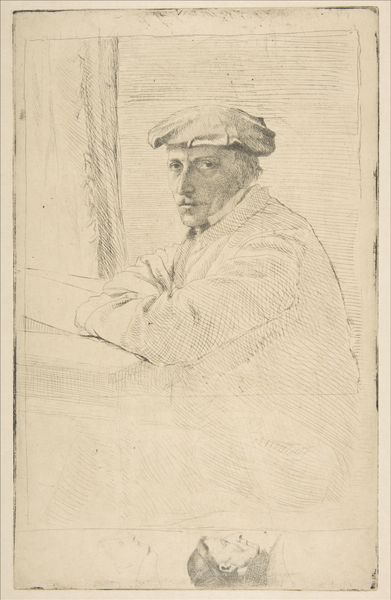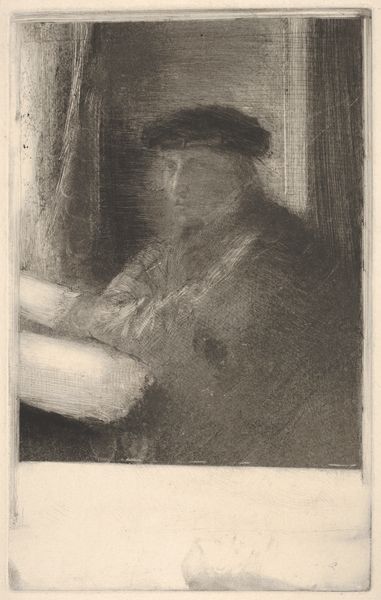
print, etching
#
portrait
#
self-portrait
#
baroque
#
dutch-golden-age
# print
#
etching
#
figuration
#
form
#
line
Dimensions: plate: 16 x 13 cm (6 5/16 x 5 1/8 in.) sheet: 16.5 x 13.6 cm (6 1/2 x 5 3/8 in.)
Copyright: National Gallery of Art: CC0 1.0
Rembrandt van Rijn made this self-portrait drawing at a window, using etching, sometime in his career. It’s easy to see it simply as an image of the artist at work. But it also reflects the changing status of artists in 17th century Netherlands. By this time, artists had begun to see themselves not as mere craftsmen but as intellectuals and entrepreneurs. Rembrandt was one of the first artists to represent himself this way. His prolific self-portraiture – painting, drawing, and etching – helped establish his brand and furthered his career. Here, he sits indoors bathed in light, but gazes out at the world through the window. We know from inventories that Rembrandt avidly collected prints and drawings by other artists. This allowed him to study how others saw the world, but also to compete with them in the marketplace. To understand this more fully, we can delve into the history of Dutch art academies and the economic structures that supported artistic production at that time. This reveals art's pivotal role in reflecting and shaping social values.
Comments
No comments
Be the first to comment and join the conversation on the ultimate creative platform.
